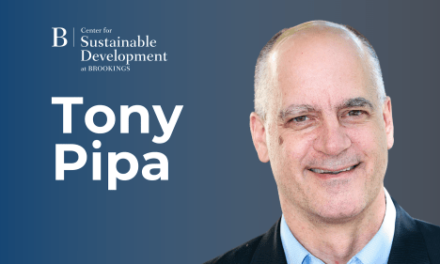On Monday, July 29, Auburn University announced that the Office of Inclusion and Diversity (OID) would be dissolved by Aug. 15. In an email sent to faculty, staff and students, university administration stated that this action was being taken in order to remain in compliance of Alabama Act 2024-34 (SB 129). The law, which will go into effect on Oct. 1, prohibits all public institutions of higher education from sponsoring any program or maintaining any office or department which promotes concepts of diversity, equity and inclusion (DEI).
Diversity
Noun: “the spectrum of individual differences and the corresponding group memberships and identities that human beings have in society; the inclusion of individuals representing more than one national origin, color, religion, socioeconomic stratum, sexual orientation, etc.”
“OID and its initiatives are what paved the way for students that look like me to have a chance at success and belonging at Auburn,” said Aahil Makhani, an Auburn graduate from the Class of 2021. During his time at the university, Makhani served as a Camp War Eagle counselor, a member of the Organizations Board and a member of the Student Government Association’s Lobby Board.
All of these organizations, he said, worked closely with and received training from the OID to ensure that students from all walks of life were being treated with dignity and respect.
“It’s no secret that Auburn is one of the least diverse and welcoming schools in the country for people that do not fit the mold of affluent, conservative, Christian and white,” he continued. “The land-grant institution even fails at accurately representing the state in which it resides, with Black students comprising less than 5% of Auburn’s student body while making up nearly 30% of the state of Alabama.”
In the 2020 Census, Alabama reported a Black or African American population of 25.8%. For the Fall 2023 semester, the University of Alabama released enrollment numbers showing a Black student population of 13.3%. In the same semester, Auburn University did not meet the same demographic proportions as the overall state, nor did it meet the proportions of its rival school – Auburn’s Black student population made up just 4.9% of the total student body. In other racial and ethnic demographics, Auburn exceeded the overall state in Asian population ratio; fell short of the state in American Indian and Alaskan Native, Native Hawaiian and other Pacific Islander and Hispanic ratios; and fell short of the University of Alabama for every demographic except White.
For transparency in calculating the previous percentages, Auburn accounts for multiracial students by having a separate “Two or More Races” option while UA discloses that students selecting multiple races adds to the numbers of individual races and ethnicities in a way that may exceed the actual number of enrolled students; that is, students choosing more than one race are counted more than once in the breakdown of enrollment by race, but only once for the total enrollment. The total enrollment by race was inflated by almost 3000 students, or approximately 8% of the total actual enrollment. In comparison, Auburn’s reported multiracial population makes up less than 3% of the student body.
The Princeton Review (not affiliated with Princeton University) publishes an annual book featuring more than 350 colleges across the United States, ranking those colleges on a variety of academic, demographic, social, and political criteria based on feedback from tens of thousands of students. Out of hundreds of schools across the country, Auburn University consistently ranks in the Top 20 on the list of colleges with the Happiest Students, which is determined by how strongly students agree or disagree with the statement, “I am happy at my school.” It also consistently ranks in the Top 15 on the list of LGBTQ-Unfriendly schools and has ranked multiple times in the Top 20 on the list of schools with Little Race/Class Interaction. This means that students tend to disagree strongly with statements about Auburn like “Students treat all persons equally, regardless of their sexual orientation and gender identity/expression” and “Different types of students (black/white, rich/poor) interact frequently and easily.”
Equity
Noun: “the policy or practice of accounting for the differences in each individual’s starting point when pursuing a goal or achievement, and working to remove barriers to equal opportunity, as by providing support based on the unique needs of individual students or employees”
Juliane Vo, one of the first student employees hired by the OID, said the office was a lifeline for them in the open sea that is navigating college. “I’m not white or rich, and my parents didn’t go to college – I was basically doing everything on my own. OID helped me with some of the stuff that most people would’ve taken for granted or hand-waved as something their parents would take care of.” They also described their two years of working there as a way to give back to the university and their peers. “I could support my fellow students through the work OID was doing.”
Along with cultural competency training and increasing awareness for existing resources, the OID offered grants, awards, and scholarships to advance the University’s mission of a more diverse and equitable Auburn. Since the OID’s beginning in the 2017-18 school year, the Inclusive Excellence Awards recognized students, faculty, and staff who had contributed significantly to that mission, and a few years later the Inclusive Excellence Programming Grants provided funding for programs (conferences, lectures, performances, etc.) that help educate about the benefits of diverse and inclusive practices. Both the Matthews Fellows Program (named after Auburn’s first African American Master’s degree recipient and faculty member, Dr. Josetta Brittain Matthews) and the OID Exploratory Grants Program helped fund research for students of underrepresented communities, and the Advancing Diversity Graduate Student Support Fund helped assist graduate students by providing the resources necessary to attend professional and academic conferences to those who have limited or no resources. In January 2024, the OID partnered with the Office of University Outreach and the East Central Alabama chapter of the National Forum for Black Public Administrators to host their MLK Scholarship Breakfast, the proceeds from which went to scholarships for local high school students.
In the summer of 2020, a new Instagram account called Black at Auburn opened and began posting anonymous submissions made by people of color who attended or worked at Auburn University. From July 7 to August 31, the account made 144 posts: one was the introduction of the page and its mission, twelve were comments or statements made by offices or organizations at Auburn reacting to the content of the account, and the remainder were stories of harassment, discrimination, or objectification. Racial slurs from people ranging from passers-by to roommates, harsher grading compared to white students, being viewed as a threat while going about their business, being treated like a prop to be seen and not heard, isolation stemming from a lack of fellow people of color, and being denied opportunities for academic or professional advancement were all common themes. One post submitted by an alum of the Class of 2006 stated that the poster would be stopping their monthly contribution to the University in no small part due to the OID, specifically because the poster felt that the office at that time was more performative than helpful and did not do nearly enough to actually help marginalized students.
“OID’s mission, in my perception, has always been about supporting students regardless of who they are,” Vo stated. “College is difficult, and many people don’t have support networks to help them navigate that experience. OID is, or was, that support network for so many students.” Vo graduated in 2023 with a Bachelor’s in graphic design, a field in which they had gotten considerable professional experience due to the work they did in the OID creating promotional graphics for programming and events. “My work at OID has been noted as one of the most impressive things on my resume. I think it is both equal parts the design work I was able to accomplish during my time and the type of work the office does, which speaks a lot to the type of person I am,” they said. “I’m very happy when employees take notice and commend me and – by extent – OID.”
Inclusion
Noun: “the practice or policy of including and integrating all people and groups in activities, organizations, political processes, etc., especially those who are disadvantaged, have suffered discrimination, or are living with disabilities”
The University’s email stated that OID workers will not have their employment terminated along with the office, but instead will be moved around to fill vacancies or otherwise will be given new roles in other departments supporting student success. In their new roles, the workers will report to the Office of the Provost, the Office of Enrollment Management, or the Division of Student Affairs. Current staff members of the OID were unavailable for comment, but Dr. Jennifer Adams, Executive Director of Public Affairs, confirmed this statement, saying, “Student organizations that received support from the Office of Inclusion and Diversity will now receive support through the Division of Student Affairs. Staff members who had been in OID have been assigned new roles and responsibilities on campus.”
Auburn University’s Cross-Cultural Center for Excellence (CCCE) is a division of the OID that supports a number of student organizations through an initiative called the Multicultural Community, and helps plan and promote programs and events centering around communities that have been or currently are unrepresented at the university. Student organizations supported by the CCCE through the Multicultural Community include religious groups such as Hillel and the Muslim Students’ Association, various international student associations (representing specific countries like Bangladesh, India, and Vietnam or broad regions and continents like Latin America and Africa), professional and academic groups for Black students like the NAACP and the National Society of Black Engineers, and organizations based on gender or sexuality like Graduate Women in Science and the Sexuality & Gender Alliance (SAGA).
Former officers and members of SAGA who recall the days before the organization joined the Multicultural Community stated that funding for events was much easier with the aid of the CCCE, with a semester cap well above anything the club could earn from membership dues. By contrast, when the club was dependent on the Organizations Board for event funding, the budgets were heavily affected by membership numbers and dues because the Board was responsible for funding far more organizations than the CCCE. They also claimed that large student organizations who had the consistent membership numbers to have a prominent role on campus could raise and receive funds for large annual events, while member numbers for a club like SAGA were dependent on whether or not students even felt safe being associated with their community – a factor that changed each year, and fared better after CCCE funding allowed for larger events and increased visibility. With OID’s impending closure and club support becoming the domain of Student Affairs, the organization is concerned about stricter budgets limiting their events and visibility on campus, which could impact membership in a time when many feel the need for a community more than ever.
Vo, who served as president of SAGA, stated that the OID’s services to the various organizations in the Multicultural Community went beyond simply aiding with logistics like scheduling and funding – they established and cultivated secure spaces where members of marginalized populations could safely rest, study, and hang out the same way that other students could in every other space.
Makhani was skeptical about the University’s sincerity regarding its commitment to maintaining an inclusive environment without the OID. “Auburn celebrates the First Amendment, yet minimizes programs that don’t center Christian students. Auburn celebrates the First Amendment, but any political statement that doesn’t toe the GOP party line is ridiculed, dismissed, and said to be antithetical to Auburn’s principles,” he stated. “I love Auburn and want to see it grow, but it can’t do that if it keeps bowing down to those that wish to keep Auburn homogeneous.”
Vo was similarly unconvinced, saying, “These guys are cowards. I thought Auburn was about ‘believ[ing] in the human touch, which cultivates sympathy with my fellow men and mutual helpfulness and brings happiness for all.’ Like, to erase an office that founds itself on connecting students with culture and each other feels antithetical to what Auburn is supposedly about.”
What’s next?
The announcement email closed by saying, “We remain resolute in our commitment to deliver exceptional experiences and to support all students, with particular emphasis on providing access and opportunity. We are dedicated to ensuring the First Amendment is celebrated and that all students, faculty and staff are welcomed, valued, respected and engaged.”
The University of Alabama – which will also be shuttering its DEI division in compliance with the law – announced in a statement from President Stuart Bell on July 23 that the DEI division would be replaced by the Division of Opportunities, Connections, and Success to ensure that students who previously benefited from the dissolving division would continue to have access to academic, professional, and social support and resources. The new division will oversee Opportunities initiatives such as the Multicultural Visitation Program and partnerships aimed at assisting students from under-served populations (such as homeless students, orphans and foster youth, students with disabilities, and students from rural areas) and Success Centers for professional and academic support and intercultural education.
When asked what actionable steps Auburn University would take to fulfill its promised commitment, Dr. Adams stated, “Auburn will continue to provide programs and services to all of our students through the Division of Student Affairs. [Former OID staff members], like all of us, will continue to ensure that our campus is a welcoming and safe community. We value every member of our campus and will respect each one.”
“As an alumni, I don’t feel welcomed, valued, respected or engaged – I feel used,” Vo declared. “For three years, my image and my friends’ images were touted as diversity propaganda and inspiration porn for the University, and now we’re just being cast aside. So much for Auburn family.”
As of Aug. 2, all navigation links to the OID or other DEI initiatives have been removed from the University’s website, and typing the URL directly in the search bar redirects the user to the Office of the Provost. The Provost’s webpage includes a link to the University’s 5-year strategic plan to put Auburn on the path to becoming a world-renowned institution of higher education. One of the goals of this plan is to “achieve a robust and diverse enrollment of students while enhancing access, affordability, and academic quality,” aiming to overhaul student recruitment to increase the proportion of unrepresented communities and better serve non-traditional enrollment like dual enrollment, transfer, and online students. This 5-year plan started in 2019, and all pages relating to it were last updated on July 15, 2024.
“The decision to make these offices illegal signals that Alabama does not care about those that are different and have had different life experiences than what is seen as the norm,” said Makhani, echoing Vo along with students and educators facing similar closures across Alabama. “OID’s efforts are invaluable in helping everyone understand each other a little bit better, and they can’t do that if they’re being legislated out of existence.”
All definitions were sourced from Dictionary.com. Due to the circumstances surrounding the word usage, definitions relating to institutional practices and policies were prioritized over other definitions.
Heather Mann is a graduate of Holly Pond High School and Auburn University.




